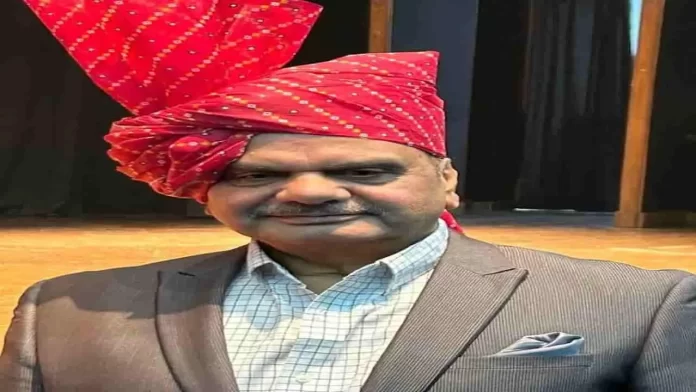Kashmiris, as part of Viksit Bharat, have colossal opportunities to live as peaceful citizens and the best economic opportunities are available for future generations.
Pakistan has brought death and destruction to Kashmir. Now is the time to tell Pakistani Keep Off Kashmir, let us all revive and restore its glory.
“Gar firdaus bar rue zameen ast/hameen asto, hameen asto, hameen ast.”
(If ever there is Paradise on Earth/It is here! It is here! It is here!)
After 35 years of political turbulence, Kashmiris across the board participated enthusiastically in the Republic Day celebrations.
Kashmir (Policy and Strategy) Group chairman Ashok Bhan said it is the beginning of ushering in peaceful coexistence and revival of the glory of Kashmir. Kashmir is the cradle of civilisation and this day heralds the new hope & future with opportunities for the youth of Kashmir.
The theme of Republic Day 2024 parade centering around ‘Viksit Bharat’ and ‘Bharat – Loktantra ki Matruka,’ highlighting India’s role as a nurturer of democracy. French President Emmanuel Macron was the Chief Guest for the Republic Day Parade and was a befitting tribute to the 75th Republic Day as it is this European country that fathered the idea of modern democracy as a form of government for the people and by the people.
This day fills every Indian heart with immense pride and joy, marking the transition to a sovereign, democratic, and republican state on January 26, 1950. It signifies the end of a hard-fought struggle for independence and the dawn of a new era characterized by hope, equality, and justice.
Republic Day embodies the core principles of our nation – Justice, Liberty, Equality, and Fraternity. It reminds us of the sacrifices made by our freedom fighters and our duty to uphold the democratic ideals they fought for. As we celebrate, we reflect on our nation’s progress and the challenges ahead.
India’s strength lies in its diversity, and Republic Day celebrates the harmonious coexistence of various cultures, languages, and traditions within our borders. It renews our commitment to unity in diversity and the pluralistic ethos that defines our nation.
On this momentous occasion, it is imperative that we honour their sacrifices by keeping their memories alive in our thoughts and hearts.
The historic birth of the Indian Republic was heralded by a salute of 21 guns and the unfurling of the Indian National Flag by Dr Rajendra Prasad. Subsequently, January 26 was declared a national holiday and recognized as Republic Day, marking the date when the Constitution of India came into effect in 1950.
Republic Day is a day of profound importance, celebrating the transformation of India from a dominion under British rule to a sovereign republic. The Indian Constituent Assembly adopted the Constitution on November 26, 1949, and it officially took effect on January 26, 1950, replacing the Government of India Act 1935.
The significance of January 26 is further rooted in history, as it was on this day in 1930 that the Declaration of Indian Independence was proclaimed by the Indian National Congress.
India had achieved independence from the British Raj on August 15, 1947, through the Indian Independence Act 1947. However, it was a constitutional monarchy at the time, with King George VI as the head of state and Lord Mountbatten as the governor-general. The nation did not yet have a permanent constitution, relying instead on the modified colonial Government of India Act 1935.
On August 29, 1947, a Drafting Committee, chaired by Dr B.R. Ambedkar, was appointed to draft a permanent constitution. After extensive deliberations and amendments, the Constituent Assembly signed the document on January 24, 1950, with it coming into effect nationwide on January 26, 1950.
While Independence Day celebrates India’s freedom from British rule, Republic Day commemorates the enforcement of its constitution. On this day, Dr Rajendra Prasad commenced his first term as the President of the Indian Union, and the Constituent Assembly transitioned into the Parliament of India under the new Constitution.


